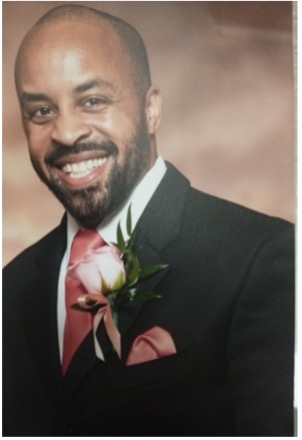Where Are All the Black Missionaries?
April 2021
By Chris Kemp, Sowing Seeds of Joy Board Member

“Where are all the Black missionaries?” I first heard this question on a short-term mission trip to Papua New Guinea about ten years ago. My team and I found ourselves in a small village talking with some of the locals, and this man wanted to know about America. “We have seen the White missionaries come, but where are all the Black missionaries? Have you forgotten about us?” His question was a good one, and although I believe it was innocent, it stung a little. Where are all the Black missionaries?
It’s a hard question to answer, and a complex one. People of color have certainly not been absent from the world mission’s movement of the Christian church since its inception. People often forget that Israel lies at the crossroads of three continents – Africa, Asia, and Europe. Consequently, when the church began, it began in a context of diverse races and ethnicities passing through or living in the Holy Land at the time.
In chapter 8 of the book of Acts, we see the apostle Philip witnessing to an Ethiopian eunuch. As he explains the gospel, the Ethiopian comes to believe in Jesus as his Savior and said, “Look! Water! What prevents me from being baptized?” (Acts 8:36). He was baptized and he returned to Ethiopia with the gospel, and is often credited with being the first missionary to Ethiopia, which still has a Christian witness today.
What’s more, the early church saw other people of color leading the church from early on. The first apostles were Middle Eastern Jews, and Paul was from Syria. It’s doubtful they looked like the northern Europeans they’re often portrayed as in popular art. Black, Brown, and White people have comingled and intermarried in this part of the world for millennia prior. Even Moses’ wife was Black.
I think it would be fair to say most people in the Middle East are brown skinned, it’s pretty sunny there. And though we don’t have physical descriptions of all the apostles, we do have one of the early church fathers, Athanasius. He was the man who stood for the doctrine of the Trinity against the Arian controversy of the 4th century, which threatened to destroy the church, and he was a person of color. He also played an integral part in the Council of Nicaea, that would inform core Christian Doctrine for the next 1600 years until today. He was Egyptian, and referred to as ‘the Black dwarf,’ as noted by church historian Justo Gonzalez.
Missions did not begin with Europeans. However, when Europeans began to be missionaries as well, they wrote about it and kept good records, which is why we know who they are. The gospel spread over the entire known Roman world and beyond primarily due to Middle Eastern and African Christians. Missions by ‘people of color’ actually predates European missions. So, the first part of our answer is that Black missionaries have always been there, from the very beginning. But what about today? And what about the African American church in the United States specifically?
To answer that question fully, we would have to take a step back at history and address slavery, segregation, Jim Crow laws in America. Although time won’t allow us to address all of these issues, suffice to say African Americans weren’t free for a long time to travel anywhere, let alone to other countries. The oppression of slavery crippled the Black church’s ability to spread its witness beyond the borders of its own nation.
The first African American missionaries we know of like George Liele and John Marrant, found themselves on the side of the British during the American Revolutionary war, which opened up opportunities to leave America’s shores. Liele eventually ended up preaching in Jamaica, and Marrant in Nova Scotia, England, and even to the Cherokee in America.
It’s only in the post-civil rights movement era, as the foot of racism has begun to be removed from the neck of the Black church that it has become possible for African Americans to imagine opportunities to spread the gospel beyond their own communities. And as awareness begins to grow, a small but growing number of African Americans have heeded the call to leave their native shores for foreign ports of call with the gospel.
Today we see missions’ organizations like Sowing Seeds of Joy that are committed to mobilizing communities of color, where in decades past this was even less common. More Black missionaries are returning to nations connected to the African diaspora, and parts unconnected thereof, with the message of salvation by faith alone in Christ. And not only are they doing it with words, but also in song. The music that rose like a phoenix from the ashes of slavery, Black gospel music, has touched people around the world. From Spain to Japan there are Black gospel choirs, full of natives of those countries who love the music, and through it, are learning to love the Savior it sings about.
Zechariah 4:10 says, “Do not despise these small beginnings, for the LORD rejoices to see the work begin…”
The work of African Americans rising up as missionaries is only really beginning in earnest in America. There was an understandable delay, as for many years the Black church had its hands full with overcoming slavery, Jim Crow, and soul crushing oppression. But that is no longer true. Although there is still work to be done in America, a new generation is arising with eyes that can see abroad.
With each passing year, I hear more Black Christians telling me they want to go on missions and serve the Lord abroad. And they make good on their promises, I’ve been on many short-term mission trips with them. So, to my friend who asked where all the Black missionaries are, I would say this, “I’m here now, and more are on the way.”
Located in Dallas, TX., Sowing Seeds of Joy is a Missions Training and Mobilization organization. Its missions… “As a bridge to the nations, Sowing Seeds of Joy engages the Black, African American, and People of Color communities through cross-cultural missions training, discipleship, and spiritual formation for the work of advancing God’s Kingdom. To learn more, go to sowingseedsofjoy.org.
Chris Kemp is a husband and father of three wonderfully energetic children. He has a Master’s in Christian Education from Dallas Theological Seminary, a Bachelors of Journalism and a minor in Spanish from the University of Missouri-Columbia and is an ordained minister. He has gone on 12+ mission trips on 4 different continents and lived in Spain for six months. He and his family love travel and seek to spread the love of God wherever they go. Also, he and his wife are happy to partner with Ron and Star Nelson, the founders and leaders of Sowing Seeds of Joy, to help mobilize people of color for missions.

